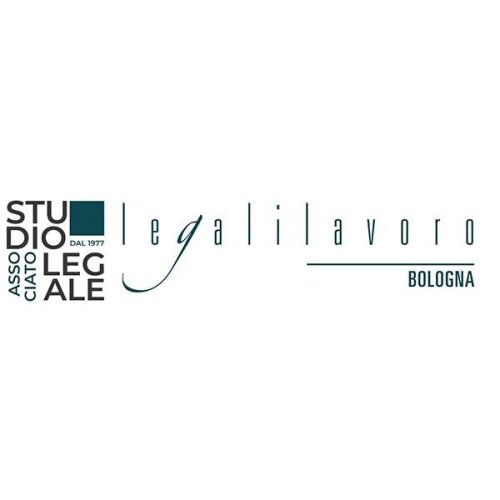Best Child Visitation Lawyers in Bologna
Share your needs with us, get contacted by law firms.
Free. Takes 2 min.
Free Guide to Hiring a Family Lawyer
List of the best lawyers in Bologna, Italy
Italy Child Visitation Legal Questions answered by Lawyers
Browse our 1 legal question about Child Visitation in Italy and read the lawyer answers, or ask your own questions for free.
- How to Obtain Visitation Rights in Milan?
- I am currently undergoing a divorce lawsuit in China with my wife, which has not yet been finalized. My wife and my son are residing in Milan, where they have residency permits, while I am in China without a residency permit. My wife took our son, who was less than... Read more →
-
Lawyer answer by Nomos Law Firm
Dear, The situation is quite complex and requires careful evaluation due to its sensitivity. We can consider sending a formal letter to the lady; however, we will need to find her address. In the letter, we will assert your rights...
Read full answer
About Child Visitation Law in Bologna, Italy
In Bologna, Italy, Child Visitation Laws stem from a foundation of children's rights and welfare. Major reforms in 2012 reshaped visitation rights and joint custody, emphasizing the need to maintain regular contact with both parents, following a separation or divorce. The court, however, has the right to limit or prohibit a parent's visitation rights if such actions are deemed essential for a child's welfare.
Why You May Need a Lawyer
Legal help is often needed in child visitation matters to ensure fair treatment of all parties involved. This need arises in cases of divorce or separation, where decisions need to be made about the child's primary residence, visitation schedule, and the division of parental responsibilities. Further, situations involving domestic violence, substance abuse, or relocation may require you to consult a lawyer to understand and protect your rights and the best interests of your child.
Local Laws Overview
In Bologna, the Italian law states that both parents have the right and duty to raise their children, even if they are separated or divorced. The court's ruling on visitation rights aims to maintain as much continuity as possible to the child’s life and protect his/her psychological and physical health. This implies that the child should maintain a strong relationship with both parents. However, in the event of any risk or harm to the child, the court can limit or remove these rights from a parent.
Frequently Asked Questions
1. How is the visitation schedule determined?
The court typically decides the visitation schedule while considering several factors like the parent's work schedule, the child's school timetable, and the child's age. However, parents can propose a schedule, which if the court deems fit, can be applied.
2. Can a non-custodial parent refuse to return the child?
Failure to return a child after visitation is considered kidnapping under Italian law. This can lead to serious legal consequences, including criminal charges.
3. What happens if a parent repeatedly violates visitation orders?
Repeated violation of court-ordered visitation rights can result in modification of the custody order, fines, or even jail time for the offending parent.
4. Can a child choose which parent to live with?
Once a child turns 12, Italian law allows them to express a preference in custody and visitation matters, and the court usually takes this into account.
5. What is the recourse in case of international child abduction by a parent?
In such cases, Italy being a signatory to the Hague Convention, allows parents to apply for the child's return via the Central Authority set up under the Convention.
Additional Resources
The Italian Ministry of Justice provides resources on family law issues, including child visitation. You may also refer to the services of Non-profit organizations such as the "Telefono Azzurro" established to ensure the protection of children's rights.
Next Steps
If you feel you need legal assistance in matters of child visitation, consider consulting with an attorney well-versed in Italian family law. Keep all relevant documents handy, such as divorce decrees, custody arrangements, and records of visitations. Feel free to reach out to legal aid services or non-profit organizations that provide free or low-cost legal advice and support.
Lawzana helps you find the best lawyers and law firms in Bologna through a curated and pre-screened list of qualified legal professionals. Our platform offers rankings and detailed profiles of attorneys and law firms, allowing you to compare based on practice areas, including Child Visitation, experience, and client feedback.
Each profile includes a description of the firm's areas of practice, client reviews, team members and partners, year of establishment, spoken languages, office locations, contact information, social media presence, and any published articles or resources. Most firms on our platform speak English and are experienced in both local and international legal matters.
Get a quote from top-rated law firms in Bologna, Italy — quickly, securely, and without unnecessary hassle.
Disclaimer:
The information provided on this page is for general informational purposes only and does not constitute legal advice. While we strive to ensure the accuracy and relevance of the content, legal information may change over time, and interpretations of the law can vary. You should always consult with a qualified legal professional for advice specific to your situation.
We disclaim all liability for actions taken or not taken based on the content of this page. If you believe any information is incorrect or outdated, please contact us, and we will review and update it where appropriate.














